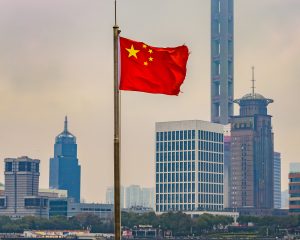The Chinese Communist Party’s July Politburo meeting, held shortly after the landmark Third Plenum, marked a crucial juncture in China’s economic policymaking for the second half of 2024. This meeting underscored an urgent recalibration of China’s economic strategy, focusing intensely on expanding domestic demand and consumer spending. This shift reflects heightened awareness of external challenges and a critical recognition of internal economic vulnerabilities.
Externally, the Politburo acknowledged the increasing strain from U.S. and EU tariffs on Chinese exports, signaling a more cautious outlook. This reflects the leadership’s concern over a deteriorating international economic environment. Domestically, the meeting addressed the stark divergence in economic performance and the difficulties of transitioning to new growth drivers, a sharp contrast to the previously optimistic tone of April.
State media highlighted domestic economic challenges, noting that second-quarter GDP grew only 4.7 percent year-on-year, falling short of expectations. While manufacturing investment and exports contributed to growth, weak consumer spending and a sluggish property sector were significant drags. Reflecting concerns over the economic slowdown, the central bank had already initiated substantial rate cuts, marking the most significant easing of monetary policy this year. The Politburo reinforced this stance, yet specifics on how the leadership plans to increase household income and reduce funding costs for companies were lacking.
Set against the backdrop of the Third Plenum, the Politburo reiterated the need for strategic resolve and timely reforms. Short-term macroeconomic policies saw a decisive recalibration, emphasizing sustained counter-cyclical efforts. The Politburo directed the swift implementation of existing initiatives, such as the 300 billion yuan ($41.4 billion) in special government bonds for equipment upgrades and consumer renewals. Additionally, there was a push to accelerate the issuance and utilization of over 2 trillion yuan in new special bonds and to resolve operational bottlenecks.
The Politburo also subtly acknowledged criticism of overcapacity and regulatory unpredictability. New measures were introduced to address inefficiencies and excessive competition within industries, aiming to mitigate overcapacity and trade tensions. This broader initiative suggests a potential move toward more sustainable and competitive industry practices. Furthermore, the Politburo stressed the importance of enhancing macro policy coordination to foster a predictable and stable environment that can boost business confidence and investment, subtly addressing persistent low market sentiment.
Stabilizing the real estate market was another focal point. The Politburo emphasized promoting the healthy development of the property sector, including supporting the acquisition of existing housing stock for affordable housing and ensuring the completion of ongoing projects. Given the real estate sector’s significant risk to GDP growth, the Politburo hinted at further policy measures, such as easing restrictions on home purchases in major cities and accelerating the renewal of existing housing stock.
The urgent focus on expanding domestic demand and consumption highlights the complexities of China’s economic trajectory. While the commitment to proactive measures and fundamental reforms indicates a resolve to address these challenges, market skepticism persists. Financial markets reacted coolly to the meeting, with key indices in China and Hong Kong declining, reflecting investor doubts about the effectiveness and immediacy of the proposed measures.
The coming months will be critical in determining whether these policies can restore confidence and invigorate the economy. Both domestic and international observers will closely monitor the effectiveness of these measures, which will set the tone for China’s economic recovery moving forward.

































